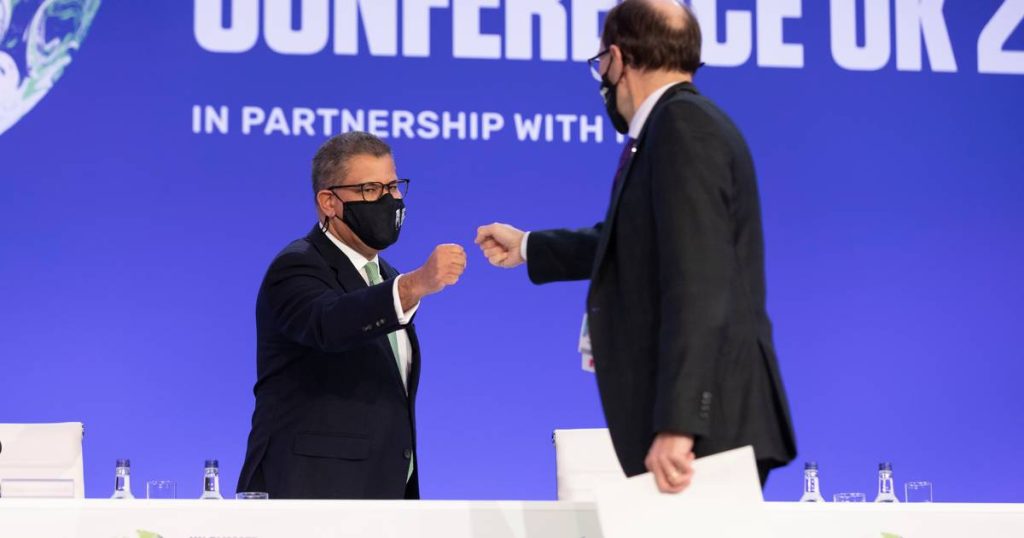COP26The 197 nations participating in the COP26 climate summit in Glasgow reached an agreement after protracted negotiations. This marks the end of more than two weeks of discussions about tackling climate change globally. The agreement aims to limit global warming to 1.5 degrees Celsius. Countries will also phase out the use of coal. The closing statement was watered down at the last minute, after criticism from China and especially India.
British Congress President Alok Sharma described the deal as “imperfect” but a step in the right direction. This sentiment also prevailed among many delegations. European Commissioner Frans Timmermann described the result as “historic”. Sharma became equally emotional during the closing session and apologized “for the way the conference went”. For example, yesterday COP26 was supposed to be completed at 7 pm Belgian time, but the countries did not reach an agreement in time.
Coal and fossil fuels
Important elements of the Glasgow Climate Charter are:
• Reduce the use of coal. Concrete years are not mentioned and different conditions apply. At the end of the summit, India refused to agree to the texts on coal that most countries had agreed upon. Until just before the last session, the texts were all about “phasing out”. That was a “reduce”.
• Ending “ineffective subsidies for fossil fuels”. The fact that the point about fossil fuels has reached the final text is an important step by the European Union, among other things.
• Continue to limit global warming to 1.5°C. This is the most ambitious goal of the Paris Climate Agreement, which dates back to 2015. In the final statement, all countries assert that the impact of climate change will be “significantly less” at 1.5 degrees than the two-degree limit.
• Reducing carbon dioxide emissions. Countries should improve their plans for this by the end of next year and bring them in line with the climate targets agreed in Paris in 2015. However, different “national circumstances” must be taken into account.
With regard to financing, it was agreed, among other things, that developing countries would receive more funds to adapt to a warming world. In addition, $100 billion (€87 billion) in annual aid previously pledged for the years up to 2025 now already needs to be delivered. States also believe that this amount should be increased.
“The outcome of COP 26 is a compromise,” António Guterres, the UN Secretary-General, wrote on Twitter. It reflects the interests, contradictions and political will of today’s world. “It is an important step, but it is not sufficient,” Guterres said. It seems that “it’s time to move into necessity mode”.
It remains to be seen whether the world will actually keep its temperature rise below 1.5 degrees. Critics are skeptical. so wrote Activist Greta Thunberg on Twitter: “As #COP26 nears its end, watch out for a tsunami of green wash and media spin to label the outcome as ‘good’, ‘progress’, ‘optimistic’ or ‘a step in the right direction’.” She also called the convention ‘blablabla’ .
At the end of 2022, a new climate summit will be held in Egypt.
Read also.
From ‘weak’ to ‘babbler’: a weak climate deal can draw on a lot of criticism
Climate protesters also at work during the last moments of COP26
Unlimited free access to Showbytes? And that can!
Sign in or create an account and never miss a thing from the stars.

“Creator. Award-winning problem solver. Music evangelist. Incurable introvert.”








More Stories
British military spy satellite launched – Business AM
Alarming decline in the Caspian Sea
Lithuania begins construction of military base for German forces